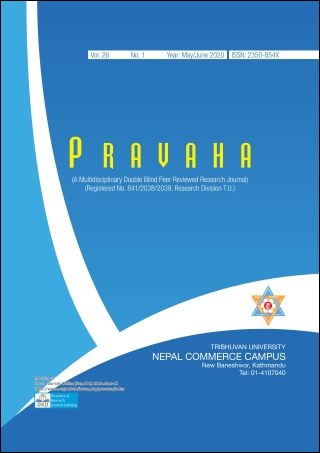Fantasy in Literature: A Symbiotic Relation to the Real
DOI:
https://doi.org/10.3126/pravaha.v26i1.41866Keywords:
fantasy, literature, supernatural, natural, fictionAbstract
This article attempts to explore the use of fantasy in literature and how it has attained the position of a literary category in the twentieth century. This work also concerns how as the form literature, it functions between wonderful and imitative to combine the elements of both. The article reveals that wonderful represents supernatural atmospheres and events. The story-telling is unrealistic which represents impossibility as it creates a wonderland. In the imitative or the realistic mode, the narrative imitates external reality. In it, the characters and situations are ordinary and real. Fantasy in literature does not escape the reality. It occurs in an interdependent relation to the real. In other words, the fantastic cannot exist independently of the real world that limits it. The use of fantastic mode in literature interrupts the conventional artistic representation and reproduction of perceivable reality. It embodies the reality and transgresses the standards of literary forming. It normally includes a variety of fictional works which use the supernatural and actually natural as well. The developers of fantasy fiction are fairy tales, science fiction about future wars and future world. A major instinct of fantastic fiction is the violence threatened by capitalist violation of personality that is spreading universally.
Downloads
Downloads
Published
How to Cite
Issue
Section
License
© Nepal Commerce Campus, TU
Authors are required to transfer their copyright to the Nepal Commerce Campus, TU.




